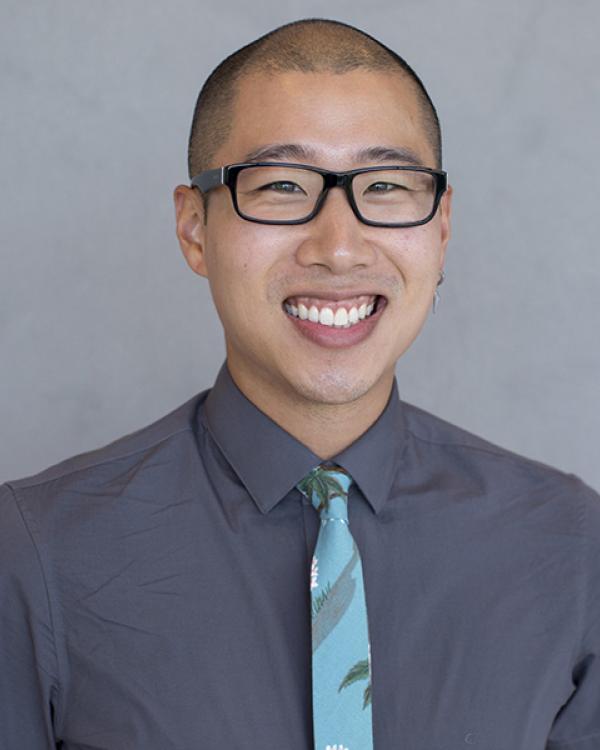
Dr. Andrew Choi, an alumnus of UC Santa Barbara’s Department of Counseling, Clinical, and School Psychology, has won the 2020 American Board of Professional Psychology (ABPP) Dr. Arthur Nezu Diversity Dissertation Award. This prestigious award recognizes an individual whose doctoral dissertation makes an outstanding contribution to the field of professional psychology and diversity and/or multiculturalism. The peer-reviewed publication version of Choi’s thesis is entitled Syndemic Behavioral Risk and Suicidality among Bisexual Adolescents: A Latent Class Analysis.
The award winner is chosen primarily based upon the quality of dissertation research and its likelihood to impact the fields of professional psychology and diversity/multiculturalism. Secondary criteria include: (a) dedication to a multicultural/diversity focus in career choice and professional psychology work, and (b) professional strengths and successes identified in recommendation letters.
Dr. Andrew (Andy) Young Choi is a Psychology Postdoctoral Fellow at Cambridge Health Alliance / Harvard Medical School. He earned his Ph.D. in Counseling, Clinical, and School Psychology at UCSB’s Gevirtz School, where he acquired a Quantitative Methods in Social Sciences (QMSS) emphasis and the Certificate in College and University Teaching (CCUT). As a GGSE student, he was advised by Drs. Tania Israel and Karen Nylund-Gibson. He completed his APA-accredited Doctoral Internship in Health Service Psychology at the University of Hawaiʻi, Mānoa Counseling and Student Development Center (CSDC). He is an APA Minority Fellow, a Pacific Athletic Conference (Pac-12) Postgraduate Scholar, and a UC Regents Special Fellow. Prior to UCSB, he graduated magna cum laude from the University of Utah with honors in Psychology and Sociology.
Choi uses advanced latent variable models to investigate culture-bound constructs, within-group variation, and behavioral health disparities among underserved ethnic, racial, and sexual minorities. His translational scholarship has addressed evidence-based practice for marginalized client populations. His works have been published in the Journal of Counseling Psychology and the Journal of Consulting and Clinical Psychology and recognized by the Asian American Psychological Association (AAPA), the Society of Counseling Psychology (APA Division 17), and the Society for the Psychological Study of Culture, Ethnicity, and Race (APA Division 45). He served on the APAGS Science Subcommittee, the Editorial Board of the Translational Issues in Psychological Science, and the Committee on Bisexual Issues of the Society for the Psychology of Sexual Orientation and Gender Diversity (APA Division 44).